Ranking News
-
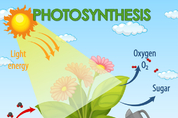
Photosynthesis: How Plants Make Their Own Food
[ Reading passage ] Photosynthesis is a chemical process that allows plants to create their own food. It mainly takes place in the chloroplasts of plant cells. Chloroplasts contain chlorophyll, the green pigment that absorbs sunlight. The basic equation of photosynthesis is:Carbon dioxide (CO₂) + Water (H₂O) + Sunlight → Glucose (C₆H₁₂O₆) + Oxygen (O₂) Let’s break it down:1️⃣ Water is absorbed from the soil through the plant’s roots.2️⃣ Carbon dioxide enters the plant through small openings in the leaves called stomata.3️⃣ Sunlight is captured by chlorophyll. Using energy from sunlight, the pl
- 관리자 기자
- 2025-06-10 01:16
-
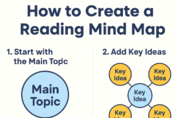
Mind Mapping: How It Can Be Used in Reading Work
Mind Mapping: How It Can Be Used in Reading WorkA powerful strategy to organize ideas, boost memory, and deepen understanding Reading is more than just going through words on a page — it’s about understanding, organizing, and remembering what you’ve read. For many students, this can feel overwhelming, especially when dealing with long texts, complicated ideas, or dense study material. That’s where mind mapping comes in — a flexible and visual learning tool that helps readers see the “big picture” and connect ideas more clearly. Whether you’re a student trying to understand a novel, an article,
- 관리자 기자
- 2025-06-12 15:00
-
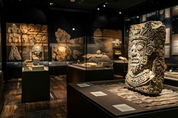
The Ancient Mayan Civilization
Who Were the Maya?The ancient Maya were a powerful civilization that lived in Central America. They built great cities and had an advanced culture. The Maya lived in what is now southern Mexico, Guatemala, Belize, and parts of Honduras and El Salvador. The Maya civilization began more than 3,000 years ago and reached its peak between AD 250 and 900. Mayan Cities and PyramidsThe Maya built amazing cities with large stone pyramids, palaces, and temples. Some famous cities include Tikal, Copán, and Chichén Itzá. In the center of each city was a great plaza for ceremonies. The Maya used huge stone
- 관리자 기자
- 2025-06-10 01:38
-
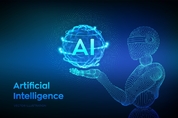
AI: The Technology That Thinks
Artificial Intelligence — or AI — is one of the most exciting and powerful technologies of our time. Once just an idea from science fiction, AI is now part of our daily lives, from smart assistants on our phones to self-driving cars. But what exactly is AI, and how is it changing the world? At its core, AI is about creating machines that can think, learn, and solve problems. Traditional computers follow fixed instructions, but AI systems can adapt. They use data to learn and make decisions. For example, when you stream music or shop online, AI recommends songs or products you might like, based
- 관리자 기자
- 2025-06-10 01:33
-

Is Online Learning Better Than Classroom Learning?
In recent years, online learning has become very popular, especially during the COVID-19 pandemic. Many students experienced both online and classroom learning. But is online learning really better than learning in a classroom? I think both styles have advantages and disadvantages. Let’s take a closer look. Pros of Online Learning First, online learning is very flexible. Students can learn from anywhere — at home, at a café, or even while traveling. They can also study at their own pace. If a student doesn’t understand something, they can watch the lesson again. This can help students who need
- 관리자 기자
- 2025-06-10 01:04
-
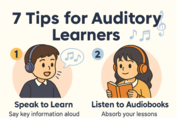
How to Learn Better If I Am an Auditory Learner
How to Learn Better If I Am an Auditory LearnerA guide for students and parents to support sound-based learning Every student learns differently. Some remember best by seeing, others by doing — and some by hearing. If you or your child often prefers lectures to reading, enjoys group discussions, or remembers things better when explained out loud, you might be an auditory learner. Being an auditory learner means your brain processes and retains information more effectively through sound and listening. This learning style is powerful when paired with the right strategies. Whether you're a studen
- 관리자 기자
- 2025-06-12 14:47
-
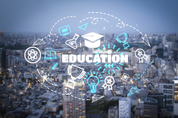
The National Education Committee: Shaping the Future of Korean Education
In a society where education is deeply connected to personal success and national progress, how a country sets its education policies matters greatly. In South Korea, education has long been a top priority — but also a topic of frequent political debate and constant change. To bring greater consistency, vision, and fairness to the nation’s education system, the National Education Committee (NEC) was established. This new, independent body is now at the center of Korea’s efforts to create long-term, future-oriented education policies that can serve students, teachers, and society more effective
- 관리자 기자
- 2025-06-10 19:45
-
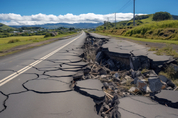
Earthquakes: When the Ground Shakes
What Is an Earthquake?An earthquake happens when the ground suddenly shakes. This shaking is caused by movements inside the Earth. The Earth’s surface is made of large pieces of rock called tectonic plates. These plates are always moving, but very slowly. Sometimes, the plates push against each other and get stuck. Over time, a lot of energy builds up. When the plates finally move, the energy is released as an earthquake. The ground can shake a little or a lot — depending on how much energy is released. How Do We Measure Earthquakes?Scientists use a tool called a seismograph to measure earthqu
- 관리자 기자
- 2025-06-10 01:25
-
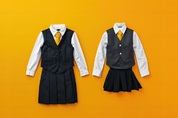
Should students wear school uniforms?
In many schools, students wear uniforms. Some students like wearing them, but others do not. I think students should wear school uniforms, and here are my reasons. First, uniforms make everyone look equal. If students wear different clothes, some may feel bad if they cannot buy expensive clothes. Uniforms help stop this problem because everyone wears the same thing. Second, uniforms save time in the morning. We do not have to think about what to wear every day. We can get ready for school faster. It also helps us focus on studying, not on clothes. Third, uniforms make students look neat and he
- 관리자 기자
- 2025-06-10 01:00
-
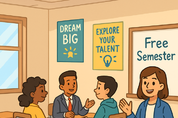
Discovering Yourself: The Free Semester System in Korea
Discovering Yourself: The Free Semester System in Korea Imagine going to school for a whole semester with no pressure from big exams. Sounds exciting, right? That’s exactly what Korea’s 자유학기제, or Free Semester System, is all about. Since 2016, this system has been offered in middle schools across the country. But why was it introduced? And what do students really think about it? Let’s take a closer look. What Is the Free Semester System?The Free Semester System allows middle school students to spend one semester focusing on exploring their interests, talents, and dreams — without worrying abou
- 관리자 기자
- 2025-06-09 23:23
-
 Politics · Economy
President Lee Jae-myung Urges Stronger Measures to Combat Inflation at Economic TF Meeting
Politics · Economy
President Lee Jae-myung Urges Stronger Measures to Combat Inflation at Economic TF Meeting
-
 Life · Common sense
Sharp Rise in Illness Reports Among Young Children — Prevention Is Key!
Life · Common sense
Sharp Rise in Illness Reports Among Young Children — Prevention Is Key!
-
 IT · Science
Alibaba International Group and the Korea Cosmetic Association (KCA) are hosting the “K-Beauty Global Jump! Business & IP Strategy Conference.”
IT · Science
Alibaba International Group and the Korea Cosmetic Association (KCA) are hosting the “K-Beauty Global Jump! Business & IP Strategy Conference.”
-
 Entertainment · Broadcasting
“Your Taste” Kang Haneul x Ko Min-si, young adults who worked hard and loved passionately! The final highlight is revealed amid rising tension!
Entertainment · Broadcasting
“Your Taste” Kang Haneul x Ko Min-si, young adults who worked hard and loved passionately! The final highlight is revealed amid rising tension!
-
 Entertainment · Broadcasting
“The Seasons - Park Bo-gum's Cantabile” featuring ENFLAING, Kang Seung-won X So Su-bin, Milena, and ENHYPEN! A romantic concert that transcends generations.
Entertainment · Broadcasting
“The Seasons - Park Bo-gum's Cantabile” featuring ENFLAING, Kang Seung-won X So Su-bin, Milena, and ENHYPEN! A romantic concert that transcends generations.
-
 Culture · Events
Coloring the world, the Cheonan K-Culture Expo comes to a close... Proving itself as a representative cultural industry expo
Culture · Events
Coloring the world, the Cheonan K-Culture Expo comes to a close... Proving itself as a representative cultural industry expo
-
 Culture · Events
Ministry of Patriots and Veterans Affairs to hold 2025 UN War Veterans' Descendants Exchange Camp
Culture · Events
Ministry of Patriots and Veterans Affairs to hold 2025 UN War Veterans' Descendants Exchange Camp
-
 International
Minister Cho Tae-yeol of Foreign Affairs meets with a delegation from the Japan-Korea Economic Association
International
Minister Cho Tae-yeol of Foreign Affairs meets with a delegation from the Japan-Korea Economic Association
-
 International
Foreign Minister Cho Tae-yul meets with Secretary-General of the African Continental Free Trade Area (AfCFTA)
International
Foreign Minister Cho Tae-yul meets with Secretary-General of the African Continental Free Trade Area (AfCFTA)
-
 Medical · Health
Korea Disease Control and Prevention Agency to view domestic and overseas health hazard information in one place
Medical · Health
Korea Disease Control and Prevention Agency to view domestic and overseas health hazard information in one place
-
1
President Lee: “We will expedite the supplementary budget in order to revive the economy and stimulate consumption.”
-
2
영어 기자단 신청 - 별도 공지
-
3
First phone call between South Korean and US leaders... “Will strive to reach satisfactory agreement on tariffs”
-
4
Presidential Office announces reorganization plan: “We will create an organization that works for the people.”
-
5
Coloring the world, the Cheonan K-Culture Expo comes to a close... Proving itself as a representative cultural industry expo
-
6
No.1 Reporter
-
7
4. The Pen Is Mightier Than the Sword
-
8
3. "Don’t Put Off Until Tomorrow What You Can Do Today"
-
9
1.Tell Me and I Forget. Teach Me and I Remember. Involve Me and I Learn.
-
10
The Power of Change: Why Electric Vehicles Are the Future
-
2025-06-12 15:00
Mind Mapping: How It Can Be Used in Reading Work
-
2025-06-12 14:47
How to Learn Better If I Am an Auditory Learner
-
2025-06-12 14:36
10 Tips to Practice for Better Scores in English
-
2025-06-12 14:26
10 Tips to Practice for Better Scores in English
-
2025-06-12 14:20
Speed Reading: Is It Effective, and Can We Train for It?





















